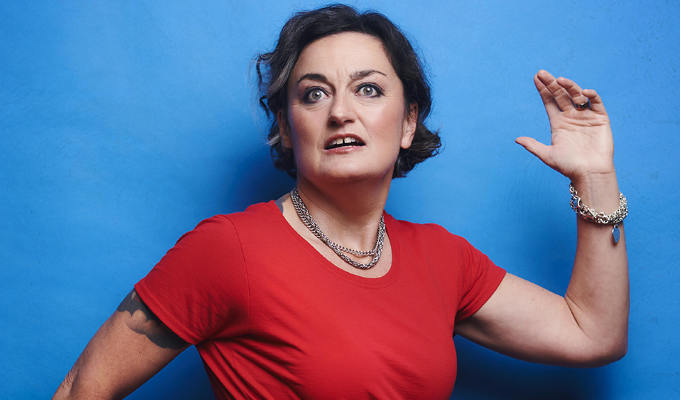
Don't take the Fringe for granted
Festival chief's warning despite 2.6m ticket sales
Edinburgh Fringe boss Shona McCarthy has warned that the festival should not be taken for granted as it was announced that around 2.6million tickets were issued at this year's event.
The figure is up just over 6 per cent on last year.
Audiences were spread over 3,764 shows – 5.3 per cent up on last year's 3,553.
Acts came from more than 60 counties, and there were 800 accredited arts industry members and almost 900 media professionals, with the number of reviewers up six per cent on 2023, despite fears the festival has become less of a priority for mainstream media.
In an open letter, McCarthy, chief executive of the Edinburgh Festival Fringe Society that puts together the programme, warned of the threats facing emerging artists that are the lifeblood of the festival.
She said performers were facing a 'relentless rise in the cost of everything' and blamed politicians for not doing enough to ensure the viability of the festival.
Here's her letter in full
As the curtain falls on the 2024 Festival Fringe, much is being discussed in the spaces, rooms, cafes and streets of Edinburgh, on the success of this year.
Today it was announced that 2.6 million tickets were issued during the 2024 Fringe, however there is no doubt that the current environment for artists across the UK is of great concern; and the fragility of the performing arts community is palpable. An outward veneer of success cannot mask the struggle for artists to emerge let alone thrive in the UK right now.
While Fringe 2024 has been brilliant, and it is to be celebrated that artists, companies, venues, producers and promoters took huge financial risks and pieced it together and put on the show, the dominant message as we close this year’s festival is that there is no Fringe without art. There is no art without artists.
The cumulative effect of the relentless rise in the cost of everything, and an unhelpful policy environment facing the arts sector has resulted in widespread concern that is keenly felt by artists.
From the availability of affordable accommodation, blunt policy changes which have consequences for major events, to continuous public sector cuts; we need to ensure that the hard won and fragile success isn’t met with complacency by those who can influence change. It is not enough to have old stories of how important Edinburgh’s festivals were in providing healing and connection after the Second World War. They are important now, contributing hugely to health, well-being, joy and job creation.
The Edinburgh Fringe vision is to give anyone a stage and everyone a seat. That is a commitment to inclusion, to freedom of expression and to being allowed to try and to fail. It is a vision that is increasingly easier to say than it is to do.
I have worked in the arts across the UK for 35 years now, and in the last two decades there has been a journey away from elitism, monoculturalism and exclusion with inspiring developments in access to the arts for all, with still a long way to go. If the UK continues on an upward trajectory of cuts to arts education, and Scotland continues to decimate investment in the sector, breaking promises of support; then we are on a direct course to job losses, exclusion and boring art that is only the privilege of those who can afford to be part of it, as performers or as audiences.
Here at the Fringe and across the UK, the pipeline of creative potential is under threat. Artistic risk and ambition is hamstrung by an operating context that squeezes out emerging artists who have made the Fringe globally renowned, unique and joyful.
How can the Edinburgh Fringe remain exemplary, exciting, experimental; the only place in the world to be every August? As the most influential arts marketplace in the world, this year over 1,800 arts industry accredited with the Fringe Society, and came to Edinburgh to seek new work for onward touring and broadcast opportunities. Nearly 900 accredited media reviewed shows, interviewed artists and worked tirelessly to support the 3,746 shows that took place this year.
There is no future for the Fringe without art. There is no art without artists. Artists and the venues who host them are at the heart of this event, and there would be no Fringe without them.
They take the risk of bringing work to the festival every year, and while the arts landscape is at a crossroads, we need to ensure that the Fringe, one of the greatest celebrations of arts and culture in the world, is protected for the future.
As we celebrate the hundreds of thousands of people who have been moved, delighted, awed, shocked and entertained by the stories artists present across Fringe stages, it feels that now, more than ever, we must not take artists for granted; we would do so at our peril.
Published: 26 Aug 2024






